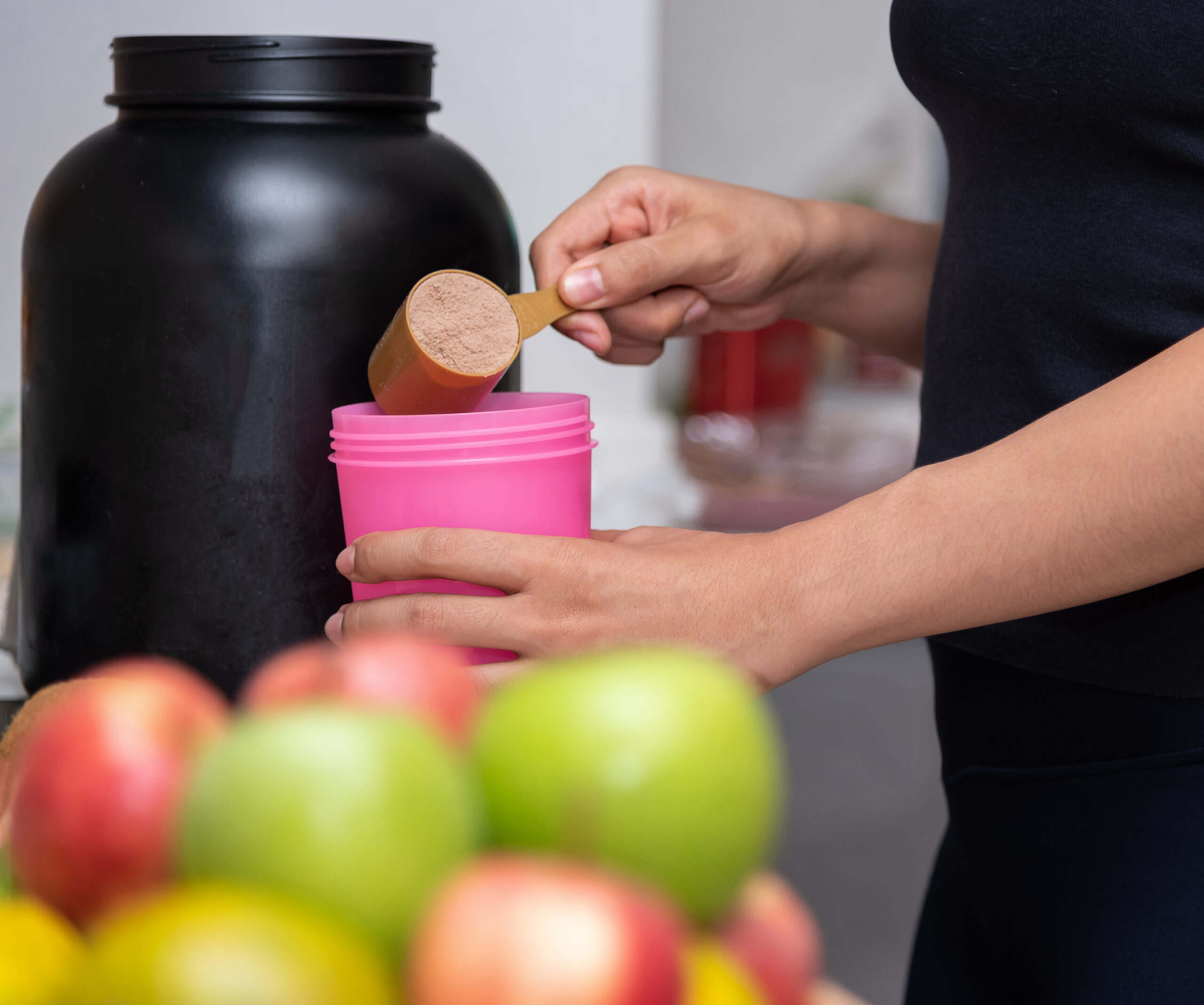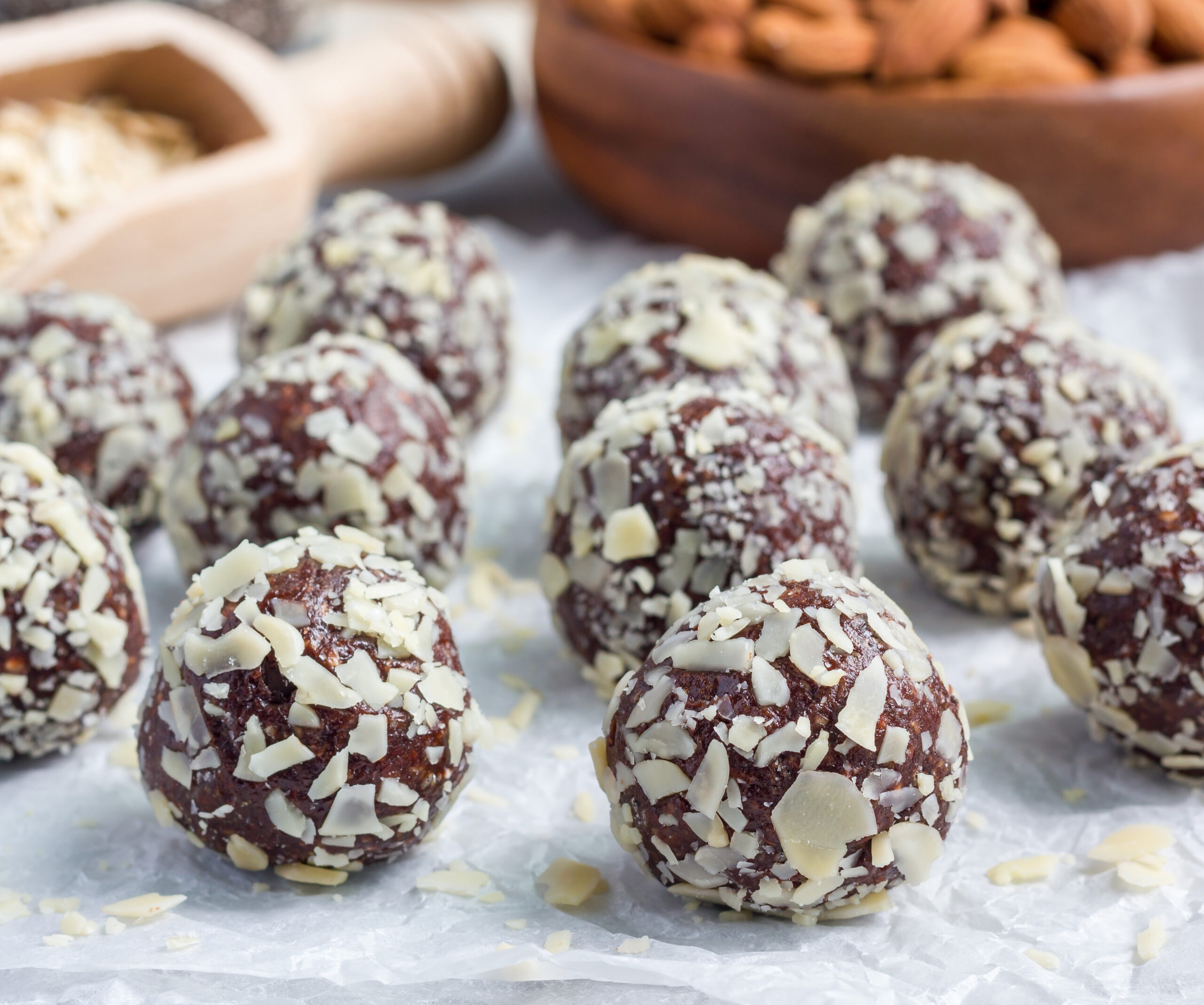Protein powders can seem like a very quick and easy way to get much-needed nutrients into your body after a workout.
We know that our muscles need protein to grow lean and strong, plus eating protein keeps us fuller for longer, with fewer calories than carbs or fats.
But while every second person at your local gym might be knocking back a protein shake after a session, what do the experts say?
Well, we’re afraid it’s not great news.
We asked a dietitian and a nutritionist for their expert opinion on protein powders and they both said they’re not massive fans.

Are you a fan of protein powders? You might want to rethink that ….
(Credit: Getty)1. Protein powders are highly processed
Protein powders contain the raw extracted protein from wholefoods like milk or peas and transform them into a powdered form.
So what you’re essentially consuming is protein that has been made in a factory, as opposed to a whole food with numerous other health benefits.
“Protein powder is a highly processed food and we know that people need to be consuming more whole foods that don’t come in a packet,” nutritionist Dr Joanna McMillan told Now To Love.
You’re always better off getting your protein from a wholefood source such as lean meat and fish, dairy, nuts, legumes and eggs.
“Often people look at the ingredient list of these powders and they have lots of vitamins and minerals added. But if I was to give you the ingredient list of a whole food, that list would be a whole lot longer,” Dr McMillan said.
Some examples of whole foods high in protein include:
Chicken
Turkey
Beef
Lamb
Eggs
Fish
Tofu
Almonds
Cashews
Peanuts
Natural peanut butter
Kidney beans
Lentils
Chickpeas
Beans
2. Most of us don’t actually need that much protein

Protein balls are a popular snack for many people, but you’re better off using ingredients like nuts and seeds for your protein instead.
(Credit: Getty)“Originally, protein powders and shakes were developed for athletes to fuel them, because their energy needs were much higher than the average Australian,” dietitian Jemma O’Hanlon told Now To Love.
“Now they’ve become mainstream I feel that although there’s a lot of benefits to eating protein, most Australians do get that naturally through the whole foods that they eat,” she said.
Most of us can easily get our protein fix from eating a small amount of protein, the size of the palm of our hand, with each meal.
“I don’t think it’s necessary for most Australians to be consuming protein bars and powder. Most people can eat more whole foods,”Jemma said.

Skip your protein smoothie for something like eggs on toast with avocado and vegetables.
(Credit: Getty)It’s a sentiment that is echoed by Dr McMillan.
“Very few Australians are actually short on protein. We have made it the darling nutrient,” she said.
“Protein powders definitely have a place in sports nutrition if you’re an athlete and you need lots of amino acids in your body, but most people aren’t athletes.
“I see some people guzzling protein shakes as they’re leaving the gym, but often these shakes, particularly the ones you can buy at juice and smoothie bars, they contains 2000kj and some people are eating a meal on top of that. That’s way too much.”
WATCH BELOW: How to make a delicious breakfast smoothie. Story continues after video.
3. They’re actually not as filling as wholefood proteins
Science tells us that when we “drink” our food, as opposed to chewing it, our bodies don’t register what we’re consuming as being filled.
“You actually don’t feel as satisfied or as full when you drink a fluid, compared to food. We know from scientific research that when you consume a protein drink, or juice or flavoured water, these drinks don’t tend to fill us up like whole foods do,” Jemma said.
“It’s like comparing an apple with apple juice. The apple juice is a highly processed version of an apple and all the fibre is taken out and it’s been concentrated.
“So we find that people will consume fluids on top of normal food. We need to be careful that we’re not over consuming liquids in general and we need to go back to eating whole foods.”

